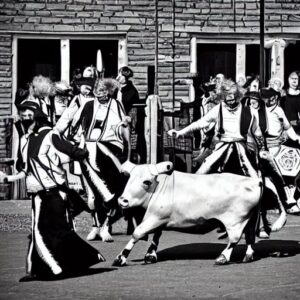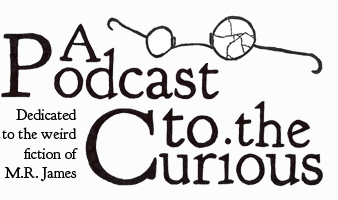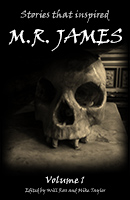 This episode we speak with two experts to better understand Eleanor Scott and her story Randall’s Round, Dr Vicky Margree and Prof Dan Orrells. We discuss what’s known about Eleanor Scott, her time at Oxford University in the early 1900s and the role of gender, folklore and imperialism in her writing.
This episode we speak with two experts to better understand Eleanor Scott and her story Randall’s Round, Dr Vicky Margree and Prof Dan Orrells. We discuss what’s known about Eleanor Scott, her time at Oxford University in the early 1900s and the role of gender, folklore and imperialism in her writing.
Vicky is a specialist in literary fiction and feminist theory. Her book British Women’s Short Supernatural Fiction, 1860-1930: Our Own Ghostliness looks at stories by Margaret Oliphant, Charlotte Riddell, Mary Elizabeth Braddon, Edith Nesbit, Alice Perrin, Eleanor Scott and Violet Hunt.
Dan focuses on the history of the interpretation of classical literature. He’s interested in the Greeks and Romans in the Victorian imagination, including how these inspired Gothic and ghostly tales at the turn of the 20th century. He co-edited with Vicky a study of Richard Marsh, a fascinating late-Victorian author who wrote about “shape-shifting monsters, morally dubious heroes, lip-reading female detectives and objects that come to life.”
In our conversation we learn more about the folklore revival, Edward B Tylor’s ideas about primitive cultures and notions of “survivals” amd the experience of women at Oxford and Cambridge (Dan recommends the Dorothy L Sayers novel Gaudy Night!).
Massive thank you to Vicky and Dan for being such engaging and insightful guests and sharing their expertise with us! If you want to read ahead, we’ll be back next time with The Weird of the Walfords by Louisa Baldwin.
Podcast: Play in new window | Download
Subscribe: RSS








Always enjoy the academic observations you lads have invited on in previous episodes and this is no exception. Super interesting regarding women in education (not allowed to get degrees? Pfft!) and the deeper dives on some of the other stories in Randall’s Round. Only quibble is Mike – Vicky and Dan contacted you in 2001? Either I have cloth ears or the pandemic really feels that long ago!
Oh no, did I say that? I despair of myself sometimes…
Great to hear another episode. They are always interesting and entertaining. Thanks for making them. I’m hanging out for an episode on my favourite author, Edith Wharton.
Very interesting, thanks for this!
I think the idea that Morris men who black their faces reflect an imperial idea of more savage races is wrong. In the early days of empire the Emperor of the Congo sent an envoy to the Vatican, in those days I think African civilisation was not inferior to our own. As a former Shropshire Bedlam I believe the black faces go even further back than that, though my beliefs are admittedly not well informed, I haven’t researched it personally. I think it goes back to at least mediaeval wassailers and is more representative of devils, or even a simple disguise. If they were putting an affront onto black men it would be with reference to white slavers from the Barbary Coast (the Bedlams believe the blacking up came to Shropshire with Cornish miners). And nothing to do with any supposed inferior savage culture.